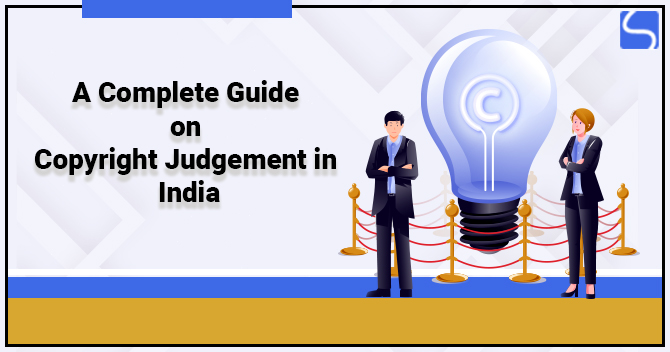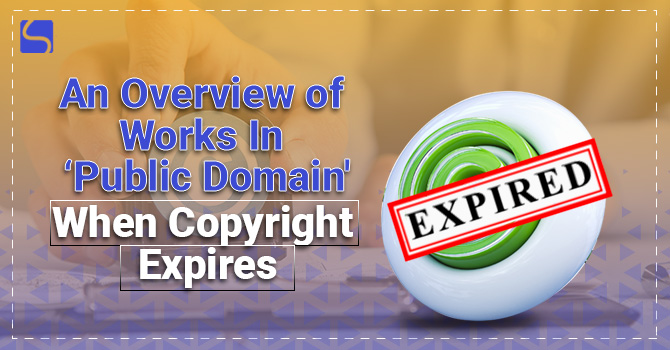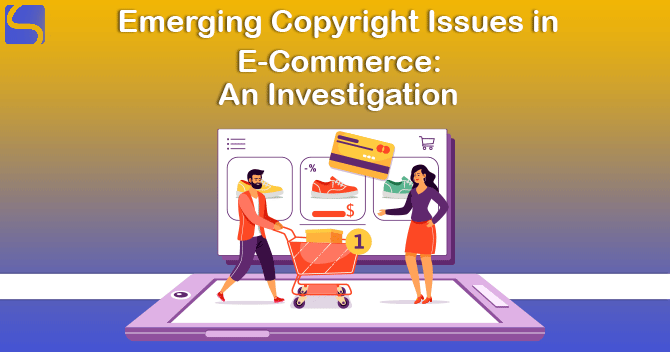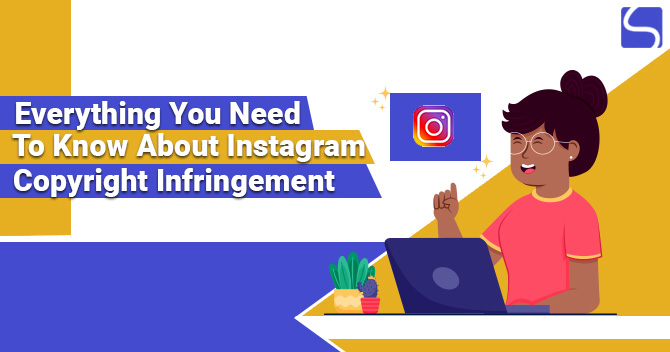A Complete Guide on Copyright Judgement in India

Karan Singh | Updated: Jul 14, 2021 | Category: Copyright
Copyright Registration is the best way of protecting a work of art from Copyright infringement and duplication. However, there are some examples when the safeguarded work or a logo counterfeited by the defaulters for commercial profit. The victim in those situations left with no other option than to leverage the process of litigation. Scroll down to check more information regarding the Copyright Judgement in India that manifests the productiveness of our legitimate system.
Table of Contents
Copyright – Meaning
Before we discuss the Copyright Judgement in India, it is necessary to understand the meaning of Copyright. It is a crucial part of the Intellectual Property Right (IPR) that provides its owner with the exclusive rights to make copies of a creative job, generally for a limited period of time. The creative work may be in an educational, literary, musical, or artistic work. Copyright is aimed to safeguard the actual expression of an idea in the creative work form; however, not the idea itself. A Copyright is a matter of limitations based on the considerations of public interest, as the fair use doctrine in the U.S.
Copyrighted can be issued by the public law & in that case deemed “Territorial Rights”. It means that Copyright issued by the law of a certain state, don’t extend beyond the territory of that particular jurisdiction. Copyrights of this type vary by nation; many nations and sometimes a vast group of nations; have made agreements with each nation on procedures appropriate when works “cross” national borders or national rights are conflicting.
Usually, the public law duration of a Copyright Registration expires 50 to 100 years after the creator dies, depending on the rule. Some nations require certain formalities of Copyright to set up Copyright; others identify Copyright in any finished work without formal registration. Generally, many think that the long duration of Copyright guarantees the better protection of work.
Copyright Judgement in India
- YouTube and Google Vs Super Cassettes Industries Limited
Super Cassettes Industries Limited claimed that the business model of YouTube collects significant profit from the use of copyrighted work uploaded without getting consent from the actual owners of Copyright and without paying any royalty for using the copyrighted work. The High Court considered that video streaming enormous, and Google should stop transmitting, reproducing, showing, or distributing on their portal any audio-visual work which is in the exclusive proprietorship of Super Cassettes Industries Limited (SCIL).
- Yahoo Inc. and Anr, C.S. (O.S.) Vs SCIL (Super Cassettes Industries Limited)
Suit for a continuous injunction avoiding Copyright Infringement started by unauthorised streaming of copyrighted works of SCIL (Super Cassettes Industries Limited) on Yahoo video streaming platform. Yahoo had taken safety under the Digital Millennium Copyright Act (DMCA)[1], telling that they will get rid of violating material when informed by the Copyright owner, which is not valid in India.
The Court passed a Copyright Judgement prevent its agents, respondent, its offices & representatives from infringing, reproducing, adapting, or transmitting in any way on their website or other infringing in any way the feature films, sound recording, or musical work of the petitioner claims Copyright, without getting an appropriate Copyright License from the applicant.
- Trisea Publications and ORS Vs. Ratna Sagar Private Limited
In this case, the petitions, a renowned publisher of books of children “Living Science”, such respondent, who published the book “Unique Science” for the Copyright Violation. As per the petitioner, the content available in the book of the defendant or respondent is confusingly similar to theirs. After inspecting either publication, the Court held the defendant guilty of Copyright Violation and charged the uninterrupted injunction on such an act as per Section 14 & 19 of the Act.
- Orient Longman Limited Vs. Najma Heptulla
The plaintiff was the legitimate heir of Maulana Abdul Kalam Azad, who has given this work to Professor Humanyun Kabir for its narration & translation. The petitioner of the plaintiff has provided the Copyright to the publisher and had rejoiced 50% of the royalty for the next thirty years. Hence, the Court held the petitioner under no condition to discourage the publisher from publishing the book after finishing the said term.
- D.B. Modal and Another Vs. Easter Book Company and Others
This matter was itself bewildering because of the way deal with the idea of Copyright in India. It also questioned of distinctiveness required to Copyright of a certain work. This case came to light when a petitioner, Eastern Book Company, file the petition in the Court for the supposed infringement done by the defendant, viz Regent Datatech Private Limited and Spectrum Business Support Limited.
The plaintiff, a recognised publishing house, claimed that the proposed respondents violated its work in an appropriate way. The defendant, in reply, claimed that such actions could not be considered as Copyright because for the following reason.
- The fair alteration & publication of Supreme Court order seeks an enormous level of legitimate knowledge and skilled labour;
- There has been a negligible level of creativity involved in such a work nature, thereby making it liable for Copyright Registration.
Hence, the petitioner has no right to influence legal proceedings on the grounds of Copyright Registration. The petitioners had difficult times with these facts as these prevented them from winning the case in the lower and High Courts. But, Supreme Court rolled the dices for the petitioners by declaring the Copyright Judgement in their favour based on the above ground.
- Piyush Agarwal & Ors V. Star India (P) Limited
The Delhi High Court believed that while the performance and sound or visual recordings of the supposed performance are covered under Copyright Registration, the facts from the broadcast were not. After the broadcast of the match, it is impractical for any party to claim that such information marked by the performance is not in the public domain. Therefore, the agreement between the BCCI and the petitioner is not practical since Copyright protection is not obtainable for information in the public domain.
- Rameshwari Photocopying Services and Anr. Vs. The Chancellor, Master & Scholars of the Oxford University & Ors.
The petitioner sued the Rameshwari Photostat and the University of Delhi for the supposed copyrighted work infringement that is course material. After inspecting the case, the Court temporary the respondent from reproducing considerable parts of the works of original publishers that is Cambridge University Press, Oxford University Press, and Taylor & France.
The Copyright Judgement seems to challenge the provision of Section 52 of the Indian Copyright Act, which states that distributing, or reproducing or using parts of a safeguarded works without offering any payment to the proprietor can be permissible. In a legitimate purview, this is known as the essence of “Fair Dealing”.
But, the plaintiff had a dissimilar thought on that as they highlighted the fact that duplication of course material through photocopying was not covered under the idea of fair dealing for private research or use.
Conclusion
It can be concluded from the Copyright Judgement as mentioned above that the similarity could have an unfavourable impact on the authenticity of a logo or mark. While some Copyright Litigation could entice massive loss for owners, it is essential to better appreciate the Copyright Act prior to applying for the same.
Read our article:An Overview of Fair Use of Copyright














